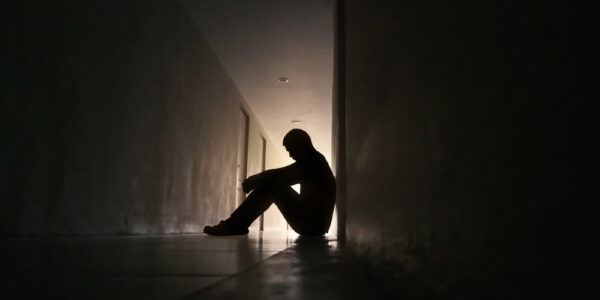LISTEN TO THIS ARTICLE:
Holiday blues are a struggle for more people than they should be. The holiday season is a time of celebration, happiness, and all around good times. Gathering together with extended family and friends, we all love this time of year, right? … Right?
That’s the general narrative that we’ve all experienced our whole lives. Anyone who says they don’t like the holidays usually gets called a “Scrooge.” But that’s not really fair. There are plenty of valid reasons not to look forward to this time of year. In fact, emergency calls about domestic disturbances and violence rise on holidays, and they’re often related to mental health.
Tensions and triggers
Almost two-thirds of people with mental illness report that the holiday season makes their symptoms worse. That’s what we call the “holiday blues.”
People experiencing depression feel extra pressure to put on a fake smile and positive attitude. Those with social anxiety find gatherings triggering. Survivors of family trauma might be forced to see and eat with their abusers at gatherings. On the flip side, all of the emphasis on getting together highlights the loneliness felt by people estranged from their families.
Financial difficulties add another compounding layer on top of all this. Travel costs and the expectation of giving and receiving gifts creates a whole lot of pressure to spend money, even if it’s money people can’t afford to spend. Acknowledging the specific things that bring you stress helps prepare you and makes them less difficult when they come up.

Setting boundaries
In a season of family gatherings, the pressure to participate can be immense. Setting boundaries is a key part of self-care. If you have past trauma associated with someone in your family, you don’t have to see them. If you feel disrespected by someone at a gathering, you have the right to leave that situation. Your family might try to pressure or guilt you into staying, but you have the right to leave triggering situations.
If you are hosting a gathering, you don’t have to invite everyone you know. It’s your home. The only people that need to be in it are the ones you want there. It’s OK to say “no” to people. Being able to say “no” is just a part of learning to speak openly about your needs. It takes some getting used to, but it’s work worth doing.
Tempering expectations
Another source of the holiday blues is the sky-high expectations that many people feel. The holiday season does not have to be perfect. This Thanksgiving doesn’t have to be just like last year’s, and Christmas doesn’t need to replicate those from your childhood. Some family members might not attend, and new friends might fill their empty seats at the table. Those who can’t make it could even visit virtually (we are living in the future, after all).
Remember that you don’t need to impress everyone, either. The tree need not disappear behind a pile of presents, and dinner can be pot-luck. When family members ask probing questions, it’s fine to be vague or not answer at all. Privacy is just as much a right at Christmas dinner as it is anywhere else.
Seasonal Affective Disorder
While these tips can be helpful for dealing with holiday stresses, make sure that your struggles aren’t related to an undiagnosed mood disorder. Seasonal Affective Disorder (SAD) is a sub-type of depression that comes on as the days get shorter and doesn’t let up until spring. Other mood disorders, like Bipolar Disorder, can have similar seasonal fluctuations too. These people experience more frequent and intense symptoms of depression, such as low energy, hopelessness, or thoughts of death/suicide. A few symptoms like oversleeping, overeating, weight gain, and social isolation strike more commonly in depression during the winter.
SAD is more common in people living in northern latitudes where the daylight is shortest. Lack of light disrupts the balance of serotonin, a brain chemical that helps regulate mood. Vitamin D supplements (which support serotonin) and light therapy (which increases vitamin D levels) help restore that equilibrium. People with SAD also respond well to the standard treatments of depression, such as medication and therapy.
Final thoughts
Whether you’re feeling the holiday blues because you’re alone or stressed because you’re surrounded by family, you are not alone. A lot of us stress out this time of year. If you only take one thing away from reading these words, I want it to be this: It is not selfish to set the boundaries you need to take care of yourself.

 Learn
Learn Read Stories
Read Stories Get News
Get News Find Help
Find Help
 Share
Share
 Share
Share
 Share
Share
 Share
Share



